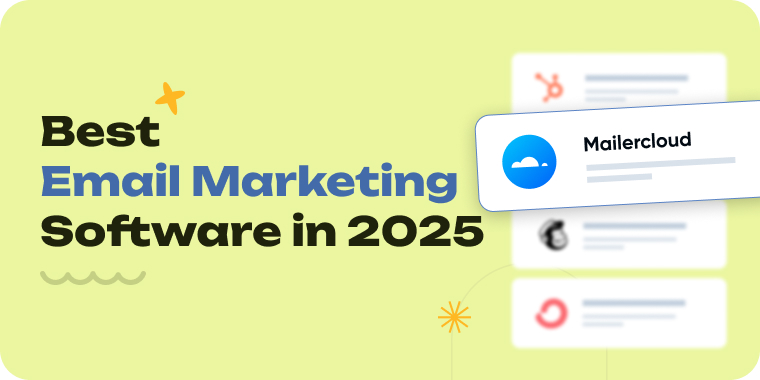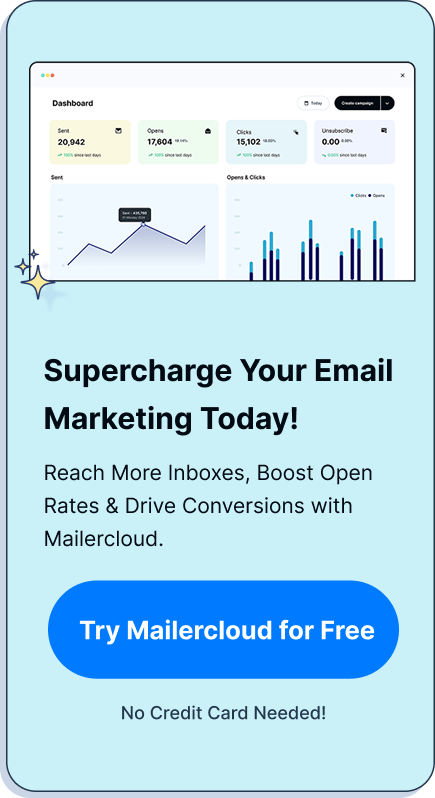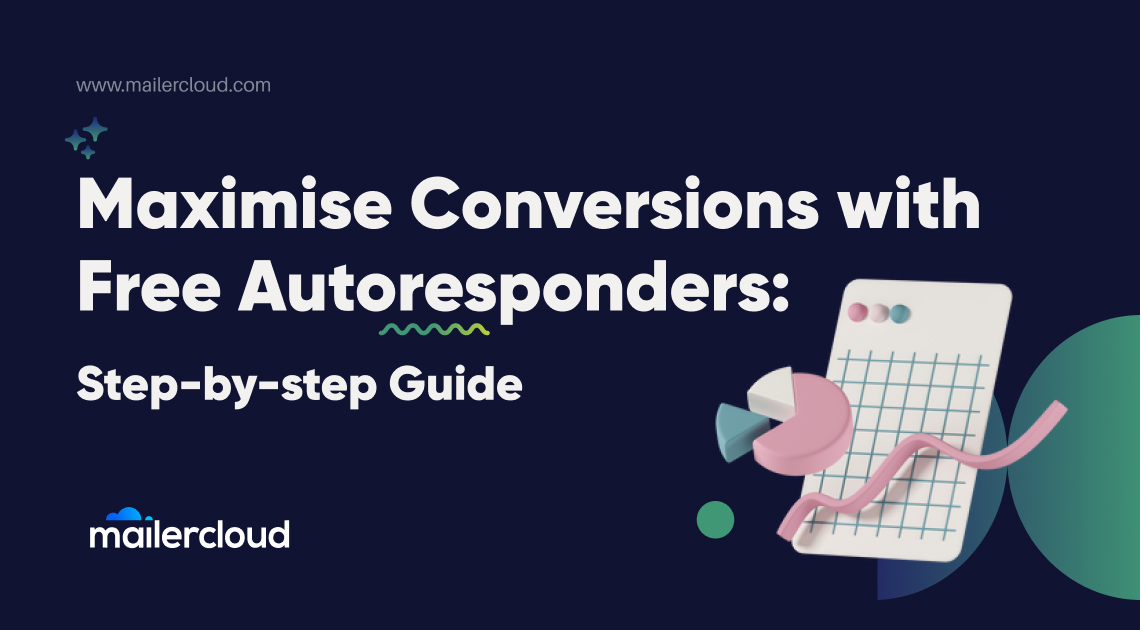Email marketing remains one of the most powerful and cost-effective digital marketing channels, consistently delivering an average ROI of $36 for every $1 spent. Whether you’re running a small business, scaling an ecommerce store, or managing outreach for a SaaS company, the success of your campaigns often hinges on the platform you choose.
With dozens of tools available — each offering a different mix of features, pricing, automation, and deliverability — finding the right fit can be overwhelming.
That’s why we’ve curated this definitive list of the 17+ best email marketing platforms for 2026. We evaluated each tool based on functionality, affordability, ease of use, automation capabilities, and performance — so you can confidently select the software that aligns with your marketing goals. If Looking for platforms that can replace SendGrid? Check out this in-depth guide on SendGrid alternatives.
Table of Contents
Quick Comparison Table
| Tool | Best For | Free Plan | Starting Price | Key Features |
|---|---|---|---|---|
| Mailercloud | Small businesses & SMBs | Yes | $7/mo (1000 contacts) | Advanced automation, AMP emails, drag-drop builder |
| Brevo | Marketing automation | Yes | $9/mo | CRM, transactional emails |
| Mailchimp | Beginners | Yes | $15/mo | Templates, analytics |
| Constant Contact | Nonprofits, events | No | $8/mo | Event management, surveys |
| MailerLite | Simplicity | Yes | $9/mo | Landing pages, automation |
| ConvertKit (Kit) | Bloggers | Yes | $33/mo | Monetization, creator tools |
| ActiveCampaign | Advanced automation | No | $15/mo | Sales + marketing automation |
| Omnisend | Ecommerce | Yes | $11.20/mo | Ecommerce automation, SMS |
| AWeber | Phone support | Yes | $12.50/mo | Templates, autoresponders |
| GetResponse | Funnels & websites | Yes | $10/mo | Funnel builder, automation |
| SendPulse | Multichannel | Yes | $8/mo | Email + SMS + push |
| Campaign Monitor | Beautiful templates | No | $9/mo | Email design |
| Moosend | Affordability | Yes | $9/mo | Drag-drop, segmentation |
| Benchmark | Simplicity | Yes | $13/mo | A/B testing, automation |
| Mailjet | Transactional email | Yes | $15/mo | Email APIs |
| Zoho Campaigns | CRM users | Yes | $12/mo | CRM + email |
| HubSpot | CRM-first users | Yes | $15/mo | CRM, workflows |
Detailed Reviews
1. Mailercloud – Best for Feature-Rich, Affordable Email Marketing
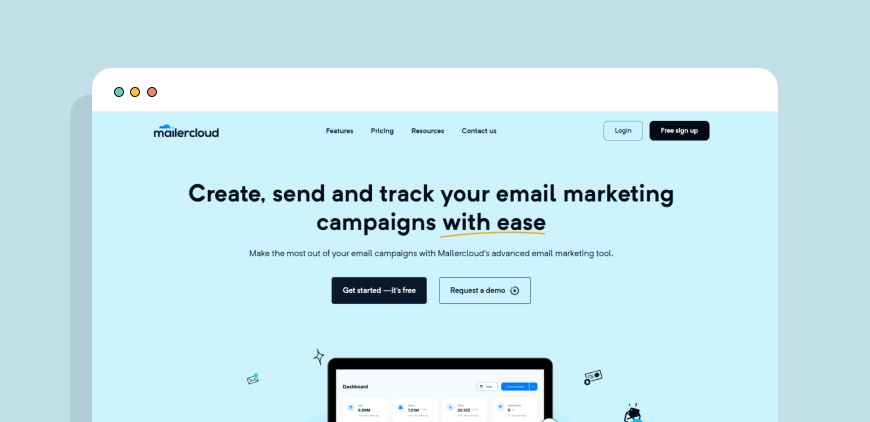
Why it stands out:
Mailercloud combines advanced email automation, real-time analytics, AMP email support, and an intuitive drag-and-drop editor, making it ideal for startups and growing businesses.
- Free Plan: Yes, includes web forms and automation
- Pricing: Starts at $10/month; $70/month for 20K contacts, $161/month for 50K contacts
- Best Features: AMP & interactive emails, Advanced automation steps, Webform integration, Real-time analytics.
Pros
✅ Easy-to-use interface
✅ Advanced email flows for ecommerce and SaaS
✅ Good deliverability and support
Cons
❌ Limited third-party integrations (still growing)
Who should use it:
Startups, ecommerce stores, and SaaS businesses looking for a scalable, budget-friendly platform.
2. Omnisend – Ecommerce-focused with powerful automations
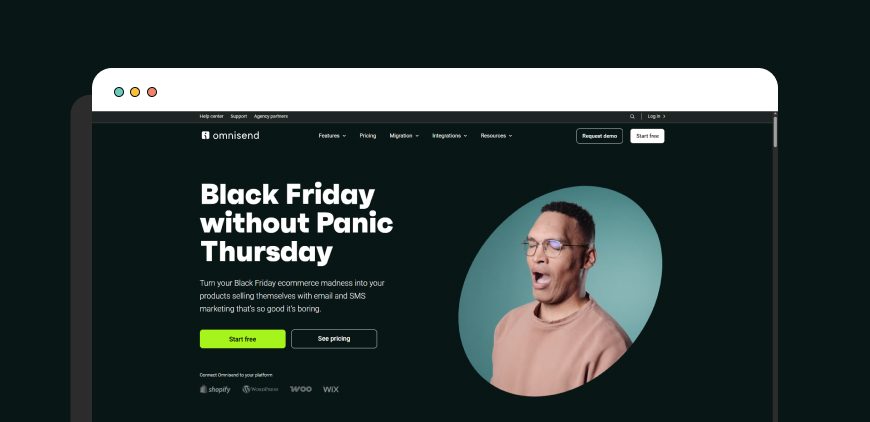
Omnisend is built for online stores, providing ecommerce automation, product pickers, and gamified email features.
Free Plan Includes:
- 250 contacts
- 500 emails/month
- Full access to automation workflows
- Web tracking, landing pages
Paid Plan Starts At: $16/month
Pros:
- Ecommerce-focused features like abandoned cart and product picker
- Full automation in free plan
- SMS and push included
Cons:
- Very limited sending allowance
- Best suited for small stores
Who Should Use It:
Ecommerce stores looking to test automation without high costs upfront.
3. Constant Contact – For Nonprofits and Event Marketers
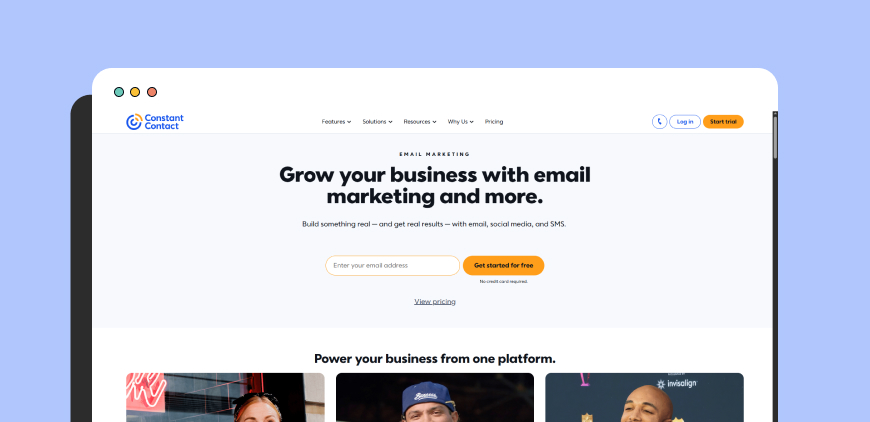
Constant Contact focuses on helping small businesses and nonprofits with easy campaign creation, event tools, and survey features.
- Free Plan: No
- Pricing: Starts at $12/month
- Key Features: Drag-and-drop editor, Event registration, Social media integration.
Pros
✅ Great support
✅ Simple for beginners
Cons
❌ Limited automation
❌ Gets pricey as lists grow
Ideal for: Nonprofits, small businesses, and event managers.
4. Brevo – Best for CRM + Automation
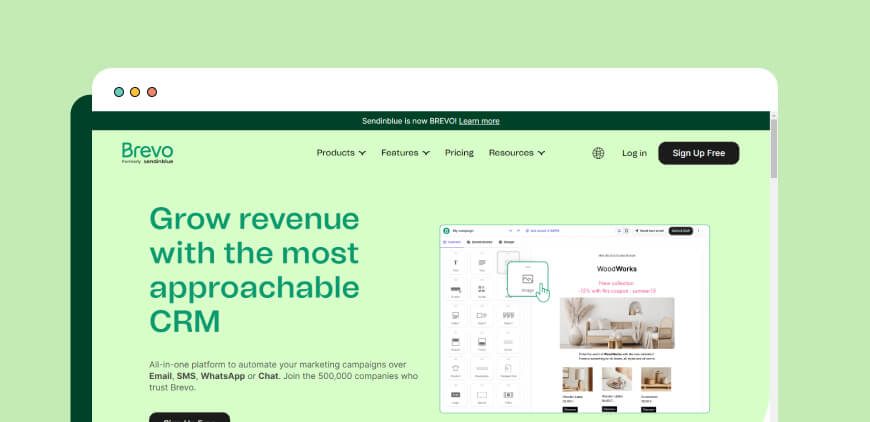
Formerly Sendinblue, Brevo offers CRM features along with marketing automation.
- Free Plan: Yes, 300 emails/day
- Pricing: Starts at $9/month
- Features: CRM, Transactional emails, Automation workflows.
Pros
✅ Great automation tools
✅ CRM integration
Cons
❌ Daily sending limits on free plan
❌ Limited template variety
Ideal for: B2B marketers and businesses using CRM-powered workflows.
5. Mailmodo

Mailmodo is an AI email marketing platform that helps teams create, automate, and optimize emails across the entire customer lifecycle.
It brings AI-driven planning, copy generation, design, segmentation, automation, and analytics into a single workflow, reducing the need for multiple tools.
Free Forever Plan Includes:
- 500 contacts
- AI-assisted email creation
- Interactive AMP emails
- Drag-and-drop editor and templates
Paid Plan Starts At: $79/month (billed annually) with a 21-day free trial
Pros:
- AI supports end-to-end email marketing workflows
- Interactive AMP emails increase engagement inside the inbox
Cons:
- May have a learning curve for teams new to AMP emails.
Who Should Use It:
SaaS, B2B, and growth teams looking for an AI-driven email marketing platform.
6. Brevo (formerly Sendinblue) – Best for automation on a budget
Brevo offers a comprehensive email marketing platform ideal for growing businesses. While the free plan has a daily sending cap, it includes automation and CRM tools typically found in paid plans.
Free Plan Includes:
- Up to 100,000 contacts
- 9,000 emails/month (300 emails/day limit)
- Basic marketing automation
- CRM and contact segmentation
Paid Plan Starts At: $9/month for 5,000 emails
Pros:
- Generous contact limits even on free plan
- Automation and transactional emails included
- CRM and segmentation support
Cons:
- No access to advanced reporting in free plan
- Daily sending limits can be restrictive
- Brevo branding in all emails
Who Should Use It:
Marketers who need basic automation and a scalable platform to grow without immediately committing to a paid plan.
7. Beehiiv – Best for creators and newsletter publishers
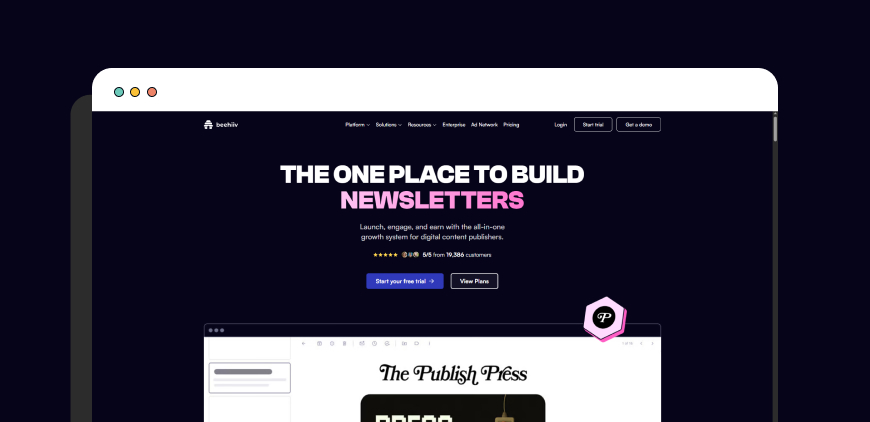
Beehiiv is designed for newsletter creators, bloggers, and media brands. It merges email, website publishing, and monetization in one platform.
Free Plan Includes:
- 2,500 subscribers
- Unlimited emails
- Website builder with custom domain support
- Up to 3 newsletters
Paid Plan Starts At: $42/month
Pros:
- Ideal for writers and content creators
- Powerful tagging and segmentation
- Recommendation engine to grow audience
Cons:
- No email automation in free plan
- Branding can’t be removed
- Paid plans start at a higher tier
Who Should Use It:
Content creators and newsletter writers who want an all-in-one publishing and email platform with growth tools.
8. EmailOctopus – Budget-friendly with AWS flexibility
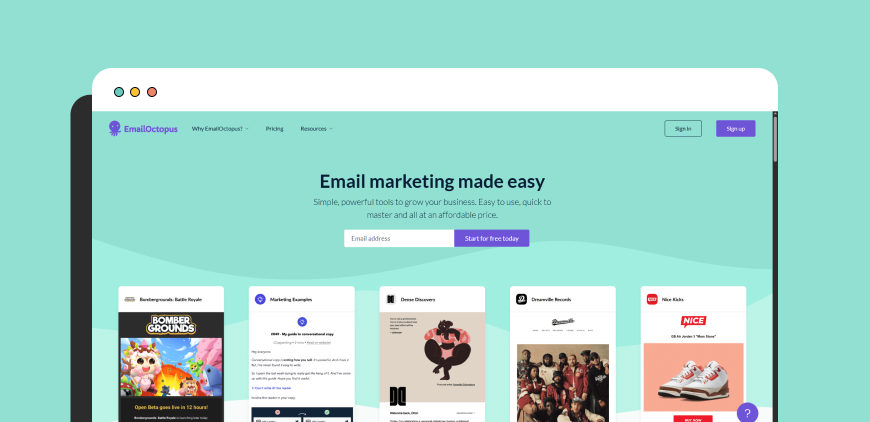
EmailOctopus is a simple, affordable tool built on Amazon SES, making it appealing to cost-conscious marketers with some technical know-how.
Free Plan Includes:
- 2,500 subscribers
- 10,000 emails/month
- Basic templates and reports
Paid Plan Starts At: $8/month for 500 subscribers
Pros:
- Excellent affordability
- Easy-to-use drag-and-drop builder
- Supports affiliate and crypto marketers
Cons:
- Limited features compared to rivals
- Support only available for 30 days on free plan
Who Should Use It:
Budget-conscious marketers, especially those using Amazon SES or needing to send simple newsletters and autoresponders.
9. Zoho Campaigns – Great for businesses already using Zoho
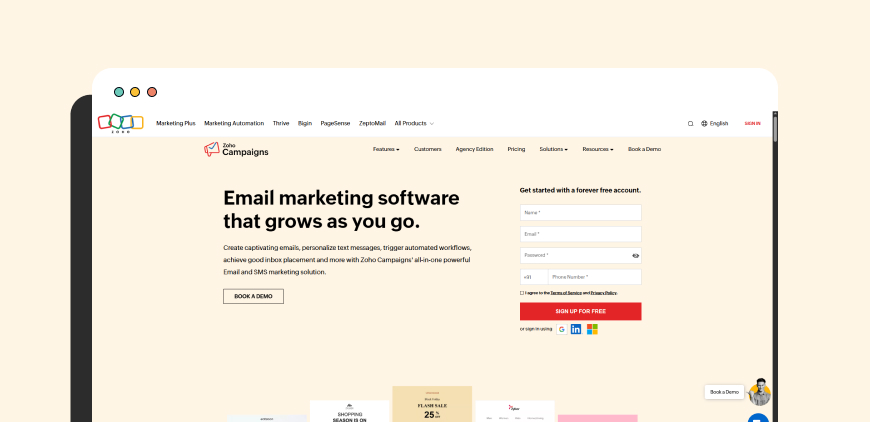
Part of the Zoho suite, this tool integrates well with Zoho CRM and other products, offering a basic but capable free plan.
Free Plan Includes:
- 2,000 contacts
- 6,000 emails/month
- Basic templates and reports
- Up to 5 users
Paid Plan Starts At: $5/month
Pros:
- Strong CRM integration
- Multiple users supported
- Clean interface with good usability
Cons:
- No automation on free plan
- Limited scheduling features
- No A/B testing
Who Should Use It:
Small businesses and startups already using Zoho products looking for a simple email marketing solution.
10. MailerLite – Clean and user-friendly email builder
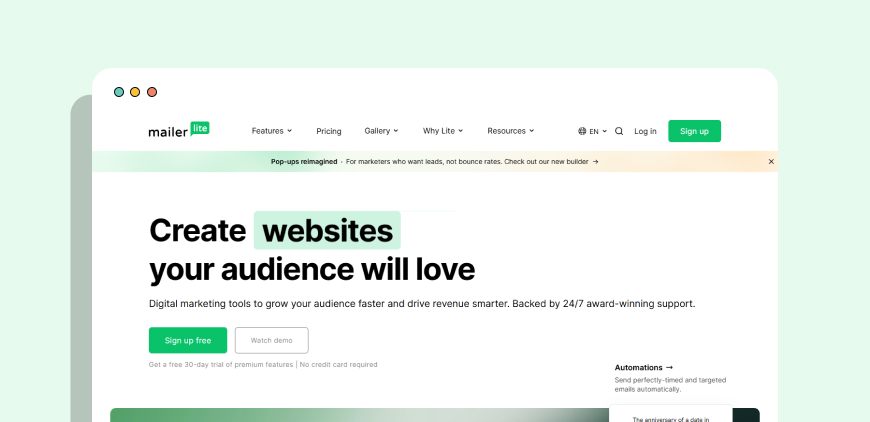
MailerLite balances simplicity and power, offering landing pages, automation, and email campaigns in a sleek interface.
Free Plan Includes:
- 500 subscribers
- 12,000 emails/month
- 1 automation step
- Landing pages and forms
Paid Plan Starts At: $10/month
Pros:
- Clean UI, perfect for beginners
- Free landing pages and automation
- Mobile-friendly emails
Cons:
- No access to templates in free plan
- Approval process can be strict
- Account suspensions reported
Who Should Use It:
Small businesses looking for an intuitive and affordable email marketing tool with essential automation.
11. SendPulse – Multichannel platform with push & SMS
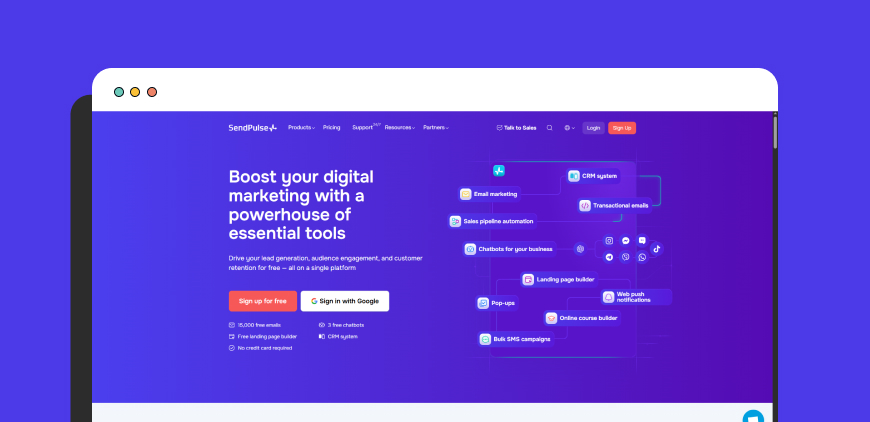
SendPulse goes beyond email with web push, Viber, and SMS integrations. It’s great for multichannel strategies.
Free Plan Includes:
- 500 subscribers
- 15,000 emails/month
- CRM, push notifications
- Website builder and forms
Paid Plan Starts At: $8/month
Pros:
- Strong multichannel capabilities
- Generous email allowance
- Good segmentation and analytics
Cons:
- Email editor can be buggy
- No workflow automation
Who Should Use It:
Businesses needing multichannel messaging (email + push/SMS) with generous free sending limits.
12. GetResponse – Website + email combo
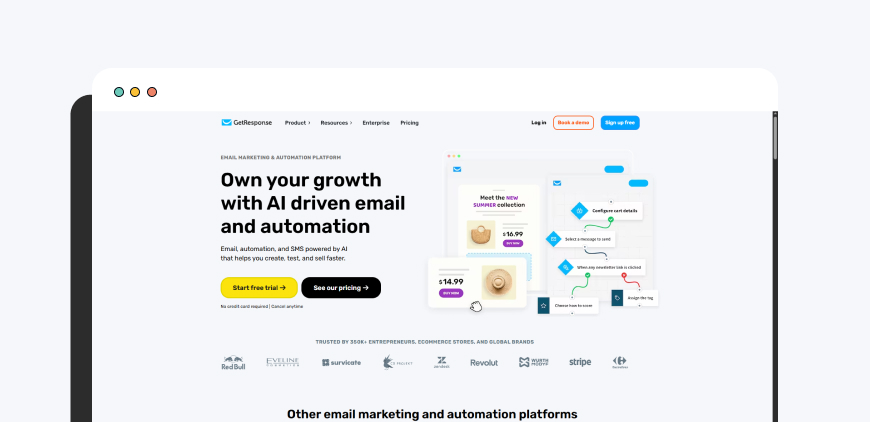
GetResponse offers a full marketing stack with landing pages, forms, and now, a free plan suitable for startups.
Free Plan Includes:
- 500 subscribers
- 2,500 emails/month
- Website builder
- Signup forms and popups
Paid Plan Starts At: $19/month
Pros:
- Website builder with SEO tools
- 500+ templates
- Good drag-and-drop editor
Cons:
- Limited automation
- Only 1 landing page
- Branding present in emails
Who Should Use It:
New businesses wanting both a website and email tool under one roof.
13. SmartrMail – Ecommerce automation made easy
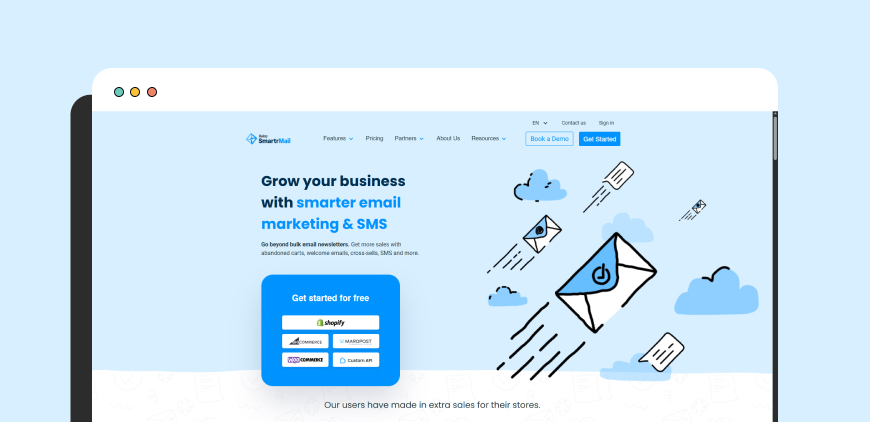
SmartrMail is tailored for ecommerce brands and integrates well with platforms like Shopify and WooCommerce.
Free Plan Includes:
- 250 active subscribers
- 1,250 emails/month
- Smart segments
- Abandoned cart automation
Paid Plan Starts At: $19/month
Pros:
- Automated ecommerce workflows
- Smart customer segmentation
- Free migration from other tools
Cons:
- Requires online store to sign up
- No landing pages
Who Should Use It:
Ecommerce businesses needing smart automation and segmenting capabilities out of the box.
14. HubSpot – Best free CRM + email combo

HubSpot’s email tool ties directly into their powerful CRM, offering a great all-in-one experience for smaller teams.
Free Plan Includes:
- 2,000 emails/month
- 1 million contacts
- CRM and deal tracking
- Web forms and contact activity
Paid Plan Starts At: $20/month
Pros:
- Best free CRM integration
- Unlimited users
- Easy-to-use editor
Cons:
- Low email limits
- Limited template options
- Branding present
Who Should Use It:
Startups or teams needing strong CRM + email combo with generous contact storage.
15. AWeber – Great support and template variety
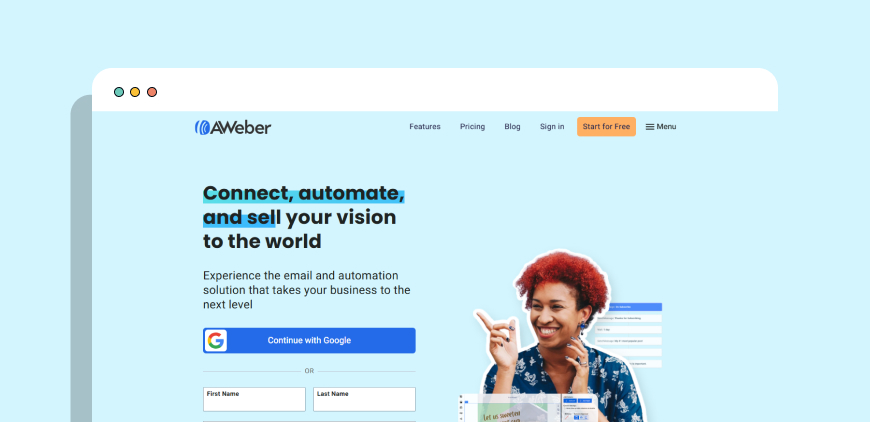
AWeber is one of the pioneers of email marketing and still stands out for its customer service and visual templates.
Free Plan Includes:
- 500 subscribers
- 3,000 emails/month
- Landing pages and templates
- Phone support
Paid Plan Starts At: $12.50/month
Pros:
- Full template library included
- Phone and email support
- Good for affiliate marketers
Cons:
- Low contact limit
- Only one list allowed
- Thin analytics
Who Should Use It:
Marketers who value phone support and access to rich design templates from the start.
16. Mailchimp – Familiar, but more limited now
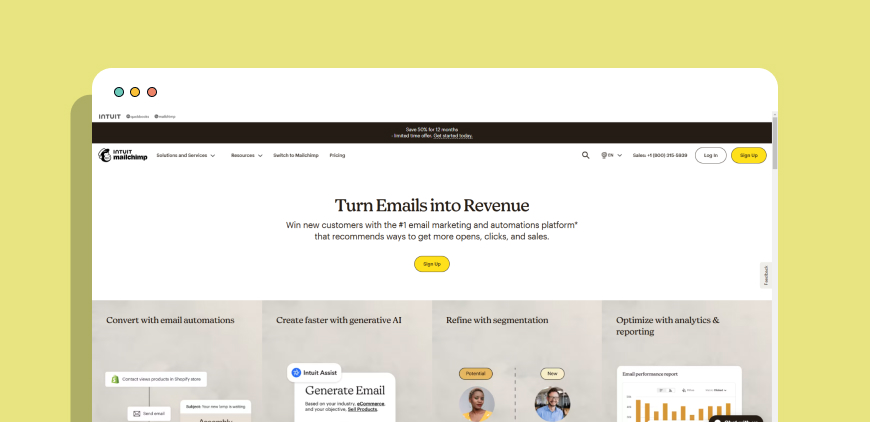
Mailchimp is still widely used but has scaled back its free plan significantly in recent years.
Free Plan Includes:
- 500 subscribers
- 1,000 emails/month
- Forms and landing pages
- Basic reports
Paid Plan Starts At: $13/month
Pros:
- Well-known brand
- 800+ integrations
- Good reporting
Cons:
- No automation in free plan
- Daily sending limit
- Poor deliverability in some cases
Who Should Use It:
Marketers who prioritize brand familiarity and integrations but are okay with limited features.
17. Mailjet – Good volume, fewer features
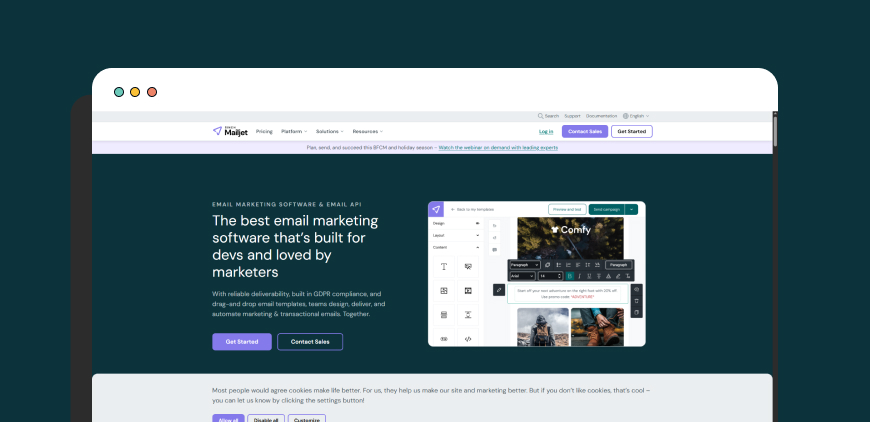
Mailjet offers generous sending limits and unlimited contacts, but fewer advanced features on free plan.
Free Plan Includes:
- Unlimited contacts
- 6,000 emails/month (200/day)
- Basic email editor
Paid Plan Starts At: $15/month
Pros:
- Great for high-volume sending
- Easy-to-use builder
- Responsive templates
Cons:
- Automations limited to trial only
- Segmentation not available in free
Who Should Use It:
Businesses needing high email volume and simple newsletters without advanced features.
18. CleverReach – Enterprise-level compliance
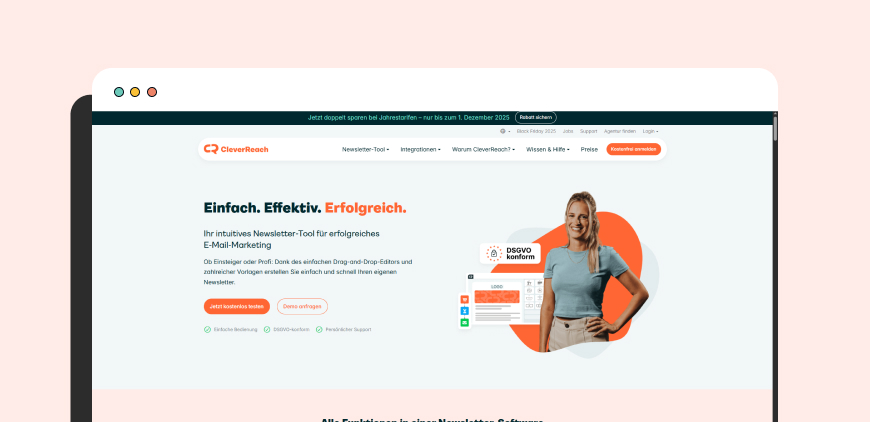
CleverReach offers GDPR-compliant email marketing with enterprise-grade reporting and workflows.
Free Plan Includes:
- 250 subscribers
- 1,000 emails/month
- Web forms and analytics
Paid Plan Starts At: €15/month
Pros:
- GDPR-compliant with EU data hosting
- Easy-to-use automation builder
- Campaign calendar
Cons:
- Very limited free plan
- Non-removable branding
- Limited responsive templates
Who Should Use It:
Businesses in the EU prioritizing data protection and compliance over advanced free features.
What to Look for in an Email Marketing Platform in 2026
- Ease of Use – drag-and-drop builders, visual automations
- Deliverability – check spam score, domain authentication (SPF, DKIM, DMARC)
- Pricing – compare cost per 1,000 contacts
- Automation – email series, segmentation, conditions
- Templates – responsive, customizable options
- Analytics – open, click, heatmaps, device breakdown
- Integrations – CRM, ecommerce, website builders
- Support – 24/7, live chat, onboarding
Final Verdict: Which Email Marketing Software Is Best?
If you’re just starting out, Mailercloud or MailerLite offers excellent value and user-friendly tools. For ecommerce, Omnisend and SmartrMail provide robust workflows. And if you’re looking for a complete CRM + email suite, Brevo or HubSpot are great picks.
FAQ
Mailercloud, MailerLite, Sender, and Brevo offer strong free plans with good email allowances and automation tools.
ActiveCampaign, Mailercloud, and Brevo provide advanced automation for behavior-based triggers.
Moosend and Mailercloud offer low-cost plans with generous features.
Some platforms offer up to 15,000–20,000 emails per month, depending on your contact limit.
As a Marketing Director, I develop and implement marketing strategies, conduct market research, and manage a team of marketing professionals. With a successful track record of launching campaigns that drive revenue growth, I bring my marketing expertise to blog writing, creating engaging content that promotes the brand and its products/services.





























